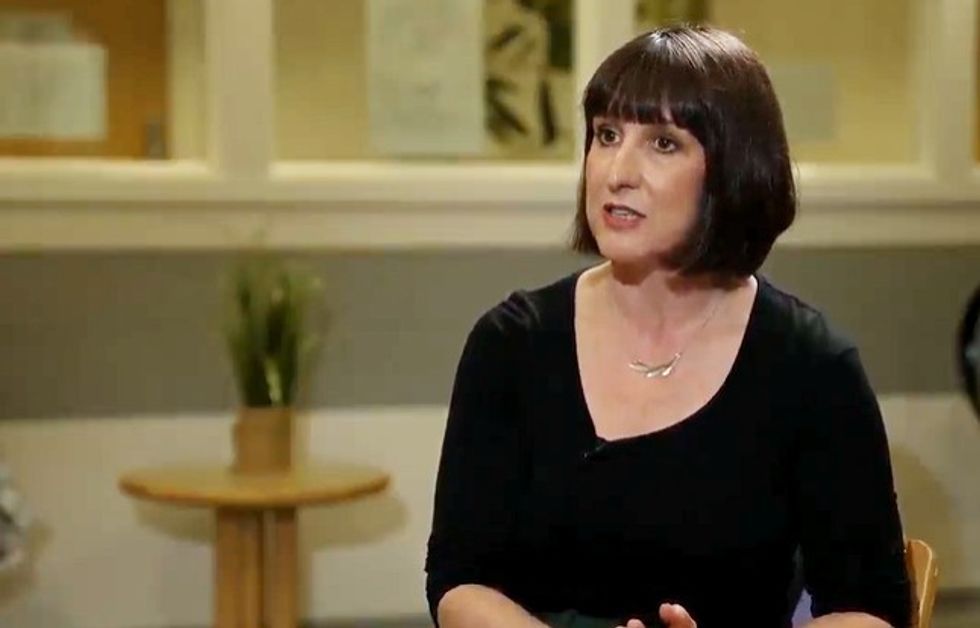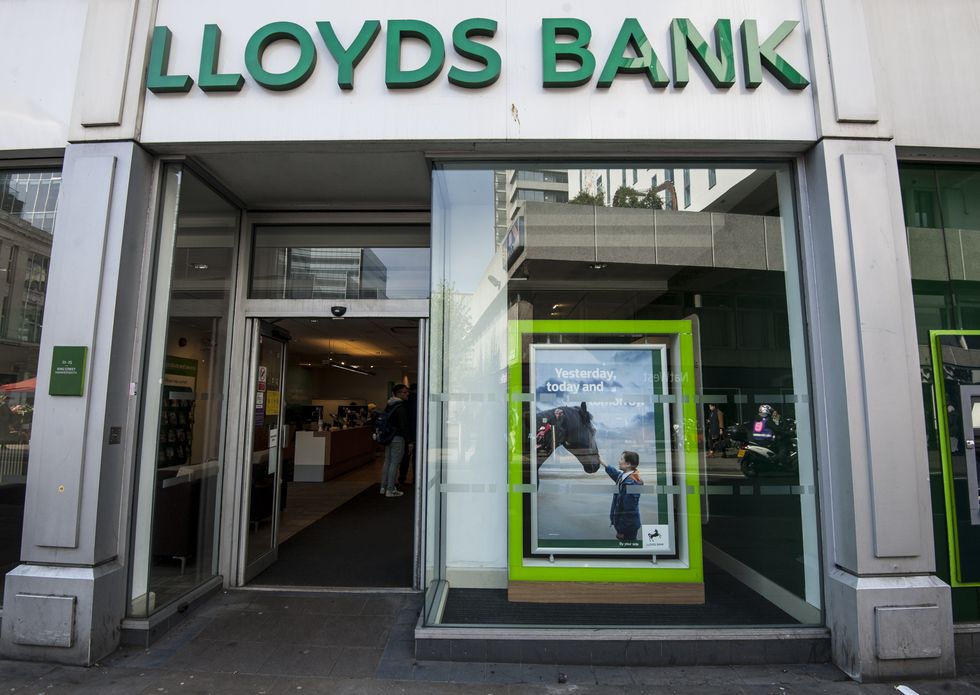Business leaders are speaking about against the rumoured “tax on jobs” from Labour ahead of Chancellor Rachel Reeves’s Autumn Budget on October 30.
Yesterday, Business Secretary Jonathan Reynolds gave the biggest hint yet that Prime Minister Keir Starmer is walking back on his promise to not tax “working people” when it comes to National Insurance.
While appearing on Sky News, Reynolds claimed his party’s electoral pledge was in reference to “taxes on working people”, suggesting the rate paid in National Insurance from employers could rise.
In its General Election manifesto, the Labour Party promised: “We will ensure taxes on working people are kept as low as possible.
“Labour will not increase taxes on working people, which is why we will not increase National Insurance, the basic, higher, or additional rates of income tax or VAT.”
This potential U-turn from the new Government has been slammed as a “tax on jobs” by Conservative Party leader candidate Robert Jenrick, as well as the wider business community.
Do you have a money story you’d like to share? Get in touch by emailing money@gbnews.uk.
 Rachel Reeves has clarified that ‘tough decisions’ will need to be made in the October Budget GB NEWS
Rachel Reeves has clarified that ‘tough decisions’ will need to be made in the October Budget GB NEWSResearch conducted by the Resolution Foundation found that charging National Insurance on employer contributions at a flat 13.8 per cent rate would increase up to £18billion annually by the end of the 2020s.
Analysis suggests that taxing employer pension contributions may potentially cost high-earners around £1,800 every year.
As it stands, bosses pay National Insurance of up to 13.8 per cent on employee earnings, however salaries are paid into a pension tax free.
City bosses are sounding the alarm that any rate increases to how much employers are already paying will hamper investment in the UK.
Kate Nicholls, the chief executive of UK Hospitality, joined Tory MPs to slam the proposal as a potential “tax on jobs”.
She explained: “Any increase in National Insurance contributions makes it harder to employ people and to take a risk on recruitment and expansion, because the costs of it will be so much higher.”
Charlie Nunn, the Lloyds Bank chief executive, added: “Anything that helps people continue to invest and take appropriate risk, we think, is really important. Anything that does the opposite would be a handbrake.
“Pensions, and contributions to pensions, are critical. We see about 40 per cent of people in the UK have a pension which won’t give them even a basic living allowance when they retire. So we need to increase enrolment and investments in pensions.”
 Lloyds Banking Groups was hit by an app outage this morning PA
Lloyds Banking Groups was hit by an app outage this morning PA
More than 500 entrepreneurs have signed a letter to the Chancellor, vocalising their opposition to any hikes to capital gains tax (CGT).
Rumours have circulated that the levy’s rate could be raised as part of the Treasury’s efforts to generate more revenue for HM Revenue and Customs (HMRC). This is a tax which is charged on the sale of shares by business owners with concerns arising that any rate hike
According to the Entrepreneurs’ Network, a CGT rate rise would “jeopardise the success of our country’s start-up ecosystem by enormously weakening the incentive individuals have to build businesses”.
GB News has contacted the Treasury for comment.
Source link
Business leaders SLAM feared hike as ‘tax on jobs'[/gpt3]
Business leaders are speaking about against the rumoured “tax on jobs” from Labour ahead of Chancellor Rachel Reeves’s Autumn Budget on October 30.
Yesterday, Business Secretary Jonathan Reynolds gave the biggest hint yet that Prime Minister Keir Starmer is walking back on his promise to not tax “working people” when it comes to National Insurance.
While appearing on Sky News, Reynolds claimed his party’s electoral pledge was in reference to “taxes on working people”, suggesting the rate paid in National Insurance from employers could rise.
In its General Election manifesto, the Labour Party promised: “We will ensure taxes on working people are kept as low as possible.
“Labour will not increase taxes on working people, which is why we will not increase National Insurance, the basic, higher, or additional rates of income tax or VAT.”
This potential U-turn from the new Government has been slammed as a “tax on jobs” by Conservative Party leader candidate Robert Jenrick, as well as the wider business community.
Do you have a money story you’d like to share? Get in touch by emailing money@gbnews.uk.
 Rachel Reeves has clarified that ‘tough decisions’ will need to be made in the October Budget GB NEWS
Rachel Reeves has clarified that ‘tough decisions’ will need to be made in the October Budget GB NEWSResearch conducted by the Resolution Foundation found that charging National Insurance on employer contributions at a flat 13.8 per cent rate would increase up to £18billion annually by the end of the 2020s.
Analysis suggests that taxing employer pension contributions may potentially cost high-earners around £1,800 every year.
As it stands, bosses pay National Insurance of up to 13.8 per cent on employee earnings, however salaries are paid into a pension tax free.
City bosses are sounding the alarm that any rate increases to how much employers are already paying will hamper investment in the UK.
Kate Nicholls, the chief executive of UK Hospitality, joined Tory MPs to slam the proposal as a potential “tax on jobs”.
She explained: “Any increase in National Insurance contributions makes it harder to employ people and to take a risk on recruitment and expansion, because the costs of it will be so much higher.”
Charlie Nunn, the Lloyds Bank chief executive, added: “Anything that helps people continue to invest and take appropriate risk, we think, is really important. Anything that does the opposite would be a handbrake.
“Pensions, and contributions to pensions, are critical. We see about 40 per cent of people in the UK have a pension which won’t give them even a basic living allowance when they retire. So we need to increase enrolment and investments in pensions.”
 Lloyds Banking Groups was hit by an app outage this morning PA
Lloyds Banking Groups was hit by an app outage this morning PA
More than 500 entrepreneurs have signed a letter to the Chancellor, vocalising their opposition to any hikes to capital gains tax (CGT).
Rumours have circulated that the levy’s rate could be raised as part of the Treasury’s efforts to generate more revenue for HM Revenue and Customs (HMRC). This is a tax which is charged on the sale of shares by business owners with concerns arising that any rate hike
According to the Entrepreneurs’ Network, a CGT rate rise would “jeopardise the success of our country’s start-up ecosystem by enormously weakening the incentive individuals have to build businesses”.
GB News has contacted the Treasury for comment.
[/gpt3]

